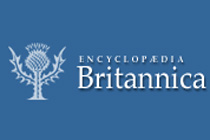Los Alamos National Laboratory exists as a major development center for engineering and scientific national security features. To date, their major responsibility is developing and maintaining systems related to national nuclear determent.
Sadly for history teachers, although not particularly unexpectedly, the laboratory's offerings appropriate to K-12 education are nearly all focused on the sciences. That said, a couple of resources may still be of use to history educators, and teachers should feel welcome to pass on the site information to their science co-workers, particularly those within New Mexico, where the laboratory is located.
What history teachers should take a look at is a history of Los Alamos National Laboratory and national security. Sections include the "Road to Los Alamos," "People of Wartime Los Alamos," "Building the Atomic Bomb," "Postwar to H-Bomb," and "H-Bomb to Stewardship." Each section offers related materials, often primary sources, such as Einstein's letter to President Roosevelt, under "Related Reading." Also included are several image galleries, including one with pictures of the Trinity Test. On the history home page, teachers should also be aware that the "Some Staff" list to the right includes J. Robert Oppenheimer, scientific director of the Manhattan Project, and Stan Ulam, a mathematician and another major figure in the project.
Classes located near Los Alamos, NM, may also be interested in the Bradbury Science Museum, which presents the laboratory's history and current research.
